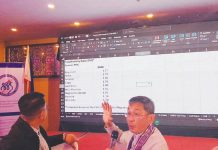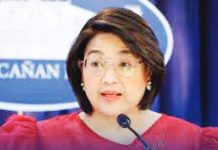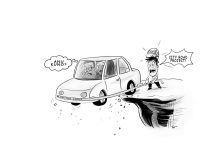
WITH THE Commission on Elections (Comelec) imposing a 10-day ban on the distribution of financial assistance from May 2 to May 12, all eyes are once again on political candidates and elected officials. The directive aims to prevent the misuse of government aid programs such as the Ayuda sa Kapos ang Kita Program (AKAP), AICS (Assistance to Individuals in Crisis Situations), and 4Ps (Pantawid Pamilyang Pilipino Program), among others, as campaign tools.
While this prohibition is a welcome reaffirmation of the integrity of the electoral process, the public is justified in asking: will politicians really comply?
The problem is not new. Comelec has long barred the presence of candidates and incumbent officials in government payout events during election periods. Yet, the workaround has become predictable: local politicians arrive hours before the distribution, deliver thinly veiled campaign speeches, pose for photo ops, then exit the venue just in time to avoid violating the letter of the law. By the time the ayuda reaches the hands of the beneficiaries, the political messaging has already been delivered. Technically, no rule was broken — but the spirit of the regulation was clearly undermined.
Such token absences are not acts of compliance. They are calculated evasions that erode public trust in the electoral process. The intent of the ayuda ban is not simply to prevent politicians from being physically present at payout sites. It is to ensure that government resources — especially those meant for the poor — are not weaponized as instruments of political gain.
The challenge now is implementation. Comelec must go beyond merely issuing resolutions. It must actively coordinate with the Department of Social Welfare and Development (DSWD), local government units, and law enforcement to monitor payout events and investigate potential violations.
Citizen vigilance, too, plays a crucial role. Communities must reject any attempt to exploit their poverty for political ends.
Election offenses must be taken seriously. Those who flout the rules should not only be named but penalized. Without accountability, this so-called ban becomes just another hollow reminder of how our politicians can bend the rules — just enough to avoid breaking them.
This election season, we don’t just need clean elections — we need honest ones. The line between what is legal and what is ethical must no longer be a gray area. The poor deserve dignity, not token aid tied to veiled political endorsements. Let us see if this time, our leaders are ready to play by the rules — for real.







